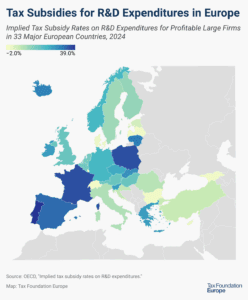
EU Seeks Tax Revenue to Close Brexit Budget Gap
2 min readBy:The European Union is preparing for a budget shortfall as the United Kingdom leaves the union. The EU is expecting a €12 billion-€13 billion loss of revenue without the contributions from the UK. The hole in the EU budget is forcing the European Commission to search for new revenue sources.
One proposal on the table is a plastics taxA tax is a mandatory payment or charge collected by local, state, and national governments from individuals or businesses to cover the costs of general government services, goods, and activities. . EU Budget Commissioner Gunther Oettinger has proposed a tax on plastic products at the EU level to help shore up the budget. He gave little detail about how the tax would be structured, but noted that the EU overproduced plastic products, suggesting the tax would help to reduce the EU’s reliance on plastics. He also notes that China has reduced its consumption of plastic waste for the EU, which has forced member states to consider alternative means of recycling.
Oettinger recognized that plastics have legitimate function in the economy. He noted that plastics are required for certain products, such as food containers and sanitary products. Oettinger suggests that these necessary plastic products would receive special treatment if a plastic tax were implemented.
Oettinger admits that a plastic tax would not be enough. In addition to more tax revenue, the EU would have to cut programs. He suggests that 50 percent would come from new revenue sources while the remaining would come from program cuts.
However, the EU has laid the groundwork for another tax. In communication from the European Commission to the European Parliament, the EC argues that current international rules for taxing digital products are inadequate to eliminate income shifting by digital companies. The EC wants the international community to fix the definition of income through transfer pricing policies created by the OECD but offer three taxes to fix the problem in the interim: a equalization tax on turnover of digitalized companies, a withholding tax on digital transactions, and a levy on revenues generated from the provision of digital services or advertising activity.
Although Oettinger has not announced digital taxes to fill the budget gap, the EC is publicly supporting the implementation of these taxes. The siren’s call of tax revenue presented as a social panacea, such as a plastics tax or digital taxation, may drive policymakers to implement economically damaging tax policy.
Instead of creating novel tax instruments to raise revenue, the EU should look to its current sources, such as the VAT-based payment. Raising the VAT call rate, currently 0.3 percent, could significantly raise revenues without damaging economic activity.
Most of all, Oettinger should stick to the promise of cutting programs to make up 50 percent of the budget gap, particularly because some of the programs no longer involve the UK.
The Euro area has seen growth over the last three years, but many of the member countries are still struggling to maintain economic expansion. Implementing taxes on plastics or digital goods are likely to have unintended consequences on economic activity, something that the EU can’t afford.
Share this article




